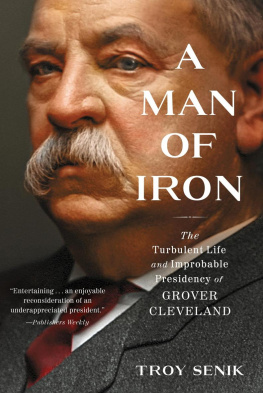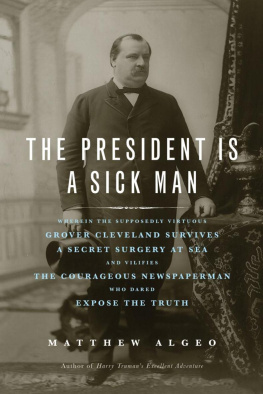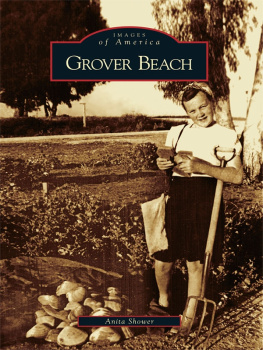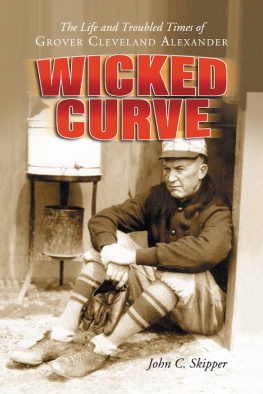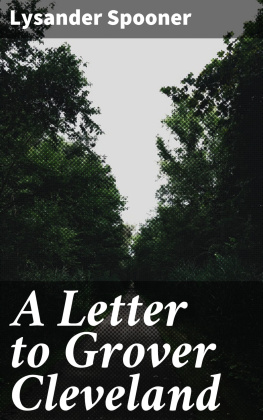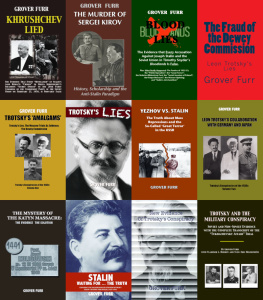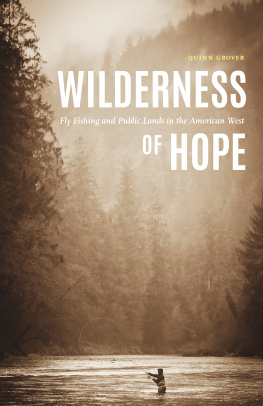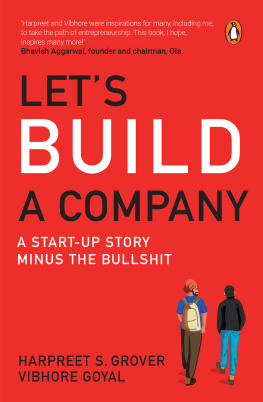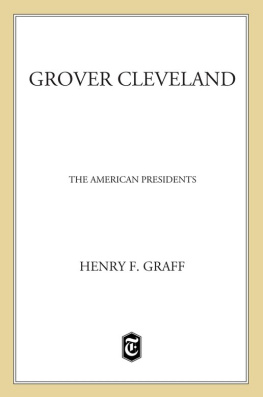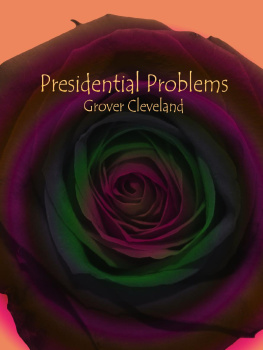Thank you for downloading this Simon & Schuster ebook. Get a FREE ebook when you join our mailing list. Plus, get updates on new releases, deals, recommended reads, and more from Simon & Schuster. Click below to sign up and see terms and conditions. CLICK HERE TO SIGN UP Already a subscriber? Provide your email again so we can register this ebook and send you more of what you like to read. You will continue to receive exclusive offers in your inbox.

For Nan and Bampa, who planted an acorn with faith that it would become an oak
Watch well, then, this high office, the most precious possession of American citizenship. Demand for it the most complete devotion on the part of him to whose custody it may be entrusted, and protect it not less vigilantly against unworthy assaults from without.
Grover Cleveland, on the presidency, July 13, 1887, Clinton, New York
KEY FIGURES

Lewis F. Allen: Grover Clevelands uncle and a leading citizen of Buffalo. Cleveland lived with Allen when he first relocated to the city, and Allen furnished him with introductions to the Buffalo legal community.
Edgar Apgar: New Yorks deputy treasurer and self-appointed talent scout for the Democratic Party. Apgar took notice of Clevelands abilities during the latters stint as mayor of Buffalo and was instrumental in his political rise.
George H. Ball: The Buffalo minister who first publicized the scandal regarding Clevelands relationship with Maria Halpin, a revelation that became central to the 1884 presidential campaign.
Lyman K. Bass: Clevelands friend and political rival from his early years in Buffalo. Bass defeated Cleveland in the 1865 election for district attorney of Erie County, at a time when the two men were roommates. Bass would later become one of Clevelands law partners before serving two terms in the House of Representatives.
Thomas Bayard: The aristocratic Delaware senator who was one of Clevelands rivals for the 1884 Democratic presidential nomination. He served as Clevelands secretary of state in his first term and his ambassador to the United Kingdom in his second term.
Wilson Shan Bissell: Perhaps Clevelands closest friend, the pair were law partners in Buffalo. Bissell would serve as Clevelands postmaster general for part of his second term.
James G. Blaine: One of the leading Republican politicians of the late nineteenth century, Blaine served as Speaker of the House, U.S. senator, and secretary of state under Presidents Garfield and Benjamin Harrison. He was the Republican presidential nominee facing Cleveland in the mud-slinging presidential election of 1884.
Edward S. Bragg: A former brigadier general in the Union Army and Wisconsin congressman, his passionate speech in support of Cleveland at the 1884 Democratic convention marked the moment at which party enthusiasm for Cleveland reached a tipping point.
William Jennings Bryan: The Nebraska representative who became the most prominent figure among pro-silver Democrats during Clevelands second term. He went on to be the Democratic Partys presidential nominee in 1896, 1900, and 1908, losing all three contests and earning Clevelands enmity for his populist stances.
Samuel Burchard: The Presbyterian minister whose infamous Rum, Romanism, and Rebellion speech at a Blaine event in the dying days of the 1884 presidential campaign was blamed for turning public opinion against the Republican presidential nominee.
Benjamin Butler: The former Massachusetts governor and political chameleon who mounted an 1884 presidential campaign on the Greenback Party ticket. Butlers campaign was funded in part by Jay Gould in an attempt to keep Cleveland out of the White House.
Roscoe Conkling: The former New York senator and leading figure in the pro-patronage Stalwart movement who intervened in the states Republican gubernatorial nomination process in 1882 and later withheld support from his nemesis Blaine in the 1884 presidential contest.
George Cortelyou: Clevelands clerk during the second term of his presidency, hired despite the fact that he was a Republican. Cortelyou subsequently served in Theodore Roosevelts cabinet and Cleveland entertained the idea of supporting him in the 1908 presidential election.
Richard Croker: Honest John Kellys successor as Grand Sachem of New Yorks Tammany Hall political machine. Croker was instrumental in brokering a truce between Cleveland and the machine prior to the formers 1892 reelection to the presidency.
Eugene Debs: The labor leader who formed the American Railway Union and stood at the center of the Pullman Strike. Debs would be jailed for his role in the dispute and would later run for president repeatedly on the Socialist Party ticket.
E. J. Edwards: The New York correspondent of the Philadelphia Press , he managed to break the story of Clevelands secret cancer surgery but was met with widespread ridicule and incredulity until the tale was verified by one of Clevelands surgeons nearly twenty-five years later.
William C. Endicott: The former Massachusetts Supreme Court judge who served as Clevelands secretary of war during his first term. It was Endicott who facilitated Clevelands controversial (and later rescinded) decision to return Civil War battle flags to members of the regiments who fought under them.
Oscar Folsom: One of Clevelands closest friends and one of his law partners in Buffalo. Upon Folsoms accidental death in 1875, Cleveland was given legal responsibility for his widow and young daughter, Frances, the latter of whom became Clevelands wife a little over a decade later.
Augustus Garland: The Arkansas senator and former Confederate whose appointment as Clevelands first-term attorney general was one of the presidents gestures toward sectional reconciliation. Garland was Clevelands main intermediary in the fight with the Senate over the Tenure of Office Act.
Richard Watson Gilder: The editor of The Century Magazine who became one of Clevelands closest friends in his later years. Gilder later wrote a book containing previously unreported vignettes from Clevelands personal life.
Jay Gould: The New York robber baron whom Cleveland spared, despite their political differences, with his gubernatorial veto of a bill that would have limited fares on Goulds elevated New York City railway.
Thomas Grady: A New York state legislator whose hot temper and close ties to Tammany Hall made him a perennial antagonist of Clevelands.
Walter Q. Gresham: The federal appellate judge who was considered as an alternative to Benjamin Harrison for the 1888 Republican presidential nomination. He went on to serve as Clevelands secretary of state in the second term before dying in office in 1895.
Maria Halpin: The widow with whom Cleveland carried on a romantic relationship in the years before his political ascent. Tales of the child that supposedly resulted from the relationshipand the rough treatment of both mother and sondogged Cleveland during the 1884 presidential contest.
Benjamin Harrison: Clevelands opponent in both the 1888 and 1892 presidential campaigns, Harrisons four years in the White House represented a sharp departure from many of the signature policies of Clevelands first term.
Thomas Hendricks: Clevelands first-term vice president, he had previously served as Samuel Tildens running mate in the 1876 presidential contest. He died in office less than a year into Clevelands term.
David B. Hill: Clevelands lieutenant governor in New York, he would succeed him as governor and later become a U.S. senator. Hill grew into one of Clevelands main political foes and was widely regarded as a potential presidential nominee for Democrats in 1892 before his overt ambition turned voters against him.
Next page
